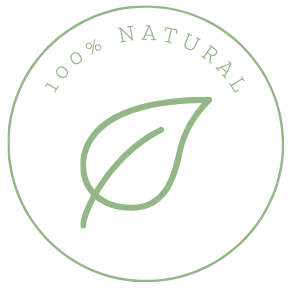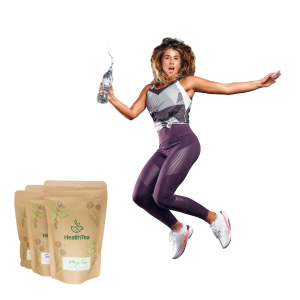Rosemary Tincture
€14.95
 .
. 

Ingredients:
Rosmarinus officinalis - Rosemary
Dried leaf fluid extract - 1:3 45%
Made using Organic herbs, Spring water & Medical Grade alcohol
Method:
Shake well. 2-3 ml (half dropper) 1 - 3 times a day. Best under the tongue and held for 30 secs. Alternatively Can also be added to water or juice. For best effect use regularly.
Benefits
Brain Boosting
The benefits of Rosemary to the brain are many, with much research having been conducted on its ability to protect and enhance brain function. One of the active ingredients of this herb is “carnosic acid”, a powerful antioxidant compound that is particularly effective at fighting free radicals in the brain. Interestingly, this antioxidant doesn’t target the free radicals until they start to damage brain cells.1 As well as its potent and selective antioxidant capacity, carnosic acid also stimulates the brain to produce the “nerve growth factor” (NGF), crucial to a healthy brain and nervous system.
Carnosic acid may also protect against Alzheimer’s disease. A 2011 study published in “Cell Journal” found that it “may be useful in protecting against beta amyloid-induced neurodegeneration in the hippocampus.” Another Japanese study found that the carnosic acid in Rosemary prevents brain aging.3
One of the major constituents of Rosemary is the phytochemical 1,8-cineole. It is this compound that has been heavily researched for its ability to enhance memory, concentration, cognitive performance and mood.
One study published in “Therapeutic Advances in Psychopharmacology” journal was undertaken to assess the potential pharmacological relationships between absorbed 1,8-cineole following exposure to Rosemary aroma, cognitive performance and mood. The results showed, “that performance on cognitive tasks is significantly related to concentration of absorbed 1,8-cineole following exposure to rosemary aroma, with improved performance at higher concentrations. Furthermore, these effects were found for speed and accuracy outcomes, indicating that the relationship is not describing a speed–accuracy trade off.”2
Hair Growth
Another famous Rosemary benefit is that it can stimulate hair growth. Rubbing Rosemary essential oil that has been diluted in the appropriate carrier oil will stimulate blood circulation in the scalp, which in turn promotes hair growth.
The many nutrients and anti-inflammatory properties of Rosemary will nourish the hair follicles and soothe an inflamed, itchy scalp. It also unclogs the follicles, providing a natural dandruff remedy, and moisturises the scalp.
Furthermore, carnosic acid was found to heal tissue and nerve endings – including those of the scalp – which can help to restore hair growth.
Arthritis
Another potent active ingredient found in Rosemary is known as rosmarinic acid, and it is this compound that is responsible for the pain killing and anti-inflammatory effects of this herb.
A 2008 study at the Department of Pharmacy and Pharmacology, State University of Maringá in Brazil found that rosmarinic acid reduces inflammation and fluid build-up whilst also acting as a painkiller.
In 2003, the “Journal of Rheumatology” published a study that looked at rosmarinic acid and its ability to modulate the immune system’s response to threats. It found that it can reduce inflammation without shutting down the immune response completely. It demonstrated rosmarinic acid’s effectiveness in reducing the hyperactivity found in immune tissues that results in rheumatoid arthritis. It was also found to reduce fluid build-up in joints.4
Insect Repellent
During the Bubonic Plague in the 14th century, people rubbed Rosemary on themselves to keep the plague away. We now know that Rosemary’s leaves contain the chemical linalool which is an excellent flea repellent and as it is also now well known, fleas carried and transmitted plague to people.
Rosemary has also been shown to be effective against include mosquitoes, ticks and other blood sucking insects.56
Eye Health
A study published in the journal, "Investigative Ophthalmology & Visual Science", led by Dr Stuart A. Lipton, PhD and colleagues at Sanford-Burnham Medical Research Institute, revealed that the carnosic acid in rosemary can significantly promote eye health. They found it could have clinical applications for diseases affecting the outer retina, such as age-related macular degeneration - the most common eye disease affecting people as they age.7
How HealthTea Tinctures Work
Tinctures are a convenient way to deliver the healing power of herbs quickly and easily. A tincture is a liquid preparation made by steeping a herb for several weeks in a blend of alcohol and water. Through this process the alcohol extracts chemicals from the plant material that water alone cannot, creating a concentrated herbal extract. The alcohol also acts as a preservative, giving the solution a long shelf life. The solution is then strained to remove debris and the liquid extract is bottled for consumption.
Tincture Strength Ratios and Alcohol Content
The strength of the tincture is usually stated on the label in the form of an extraction ratio, for example, 1:3. This means they have used one part herb for every three parts liquid. In other words, one kilogram of herb was steeped in three litres of solution.
Because the solution is typically made of a mix of water and alcohol, the percentage of alcohol used is also presented on the labels. For example, 45% volume means 45% alcohol, 55% water.
What Percentage of Herb is in a Tincture?
We often get asked how much percentage of a herb is in a tincture. And while it may seem like a straightforward question, it doesn’t have a straightforward answer.
Some variants to consider include:
the length of steeping process
each herb reacts differently in the alcohol and water solution according to its intrinsic chemical makeup
the final preparation is a concentrated extract of the herb, which can include varying amounts of dregs of the actual herb
It is therefore impossible to gage how much of the actual herb is present in the final preparation without proper laboratory testing. We do not have the capacity to test each batch of every tincture we get and rely on the ratios and alcohol percentages that are given by our suppliers to communicate as much information about the tinctures as possible to our customers.
How to Take a Tincture
Our tinctures come with a pipette or dropper, which when full, measures at 1ml or about 20 drops.
Because tinctures are concentrated, you only need to take a small amount. And while we always recommend you speak to a medical or herbal practitioner for advice on how much to take for varying conditions, the suggested use we state on our labels is usually between 2ml to 3ml up to three times a day.
Being in liquid form, the chemical constituents of the herb enter your bloodstream rapidly. Tinctures can be taken in a little water or juice. For children or those who wish to avoid alcohol, add tincture to boiling water and leave for ten minutes, which allows most of the alcohol to evaporate.
If you have any doubts about how to take tinctures or whether you should be using them, please consult a registered medical herbalist

We aim to process All orders within 24 hours on working days. Please allow Approximately 2-3 day delivery.
Additional information
| Weight | 1 kg |
|---|






Reviews
There are no reviews yet.